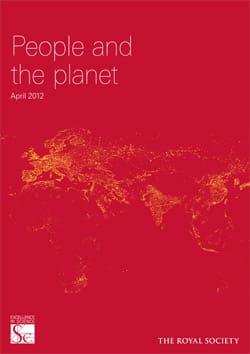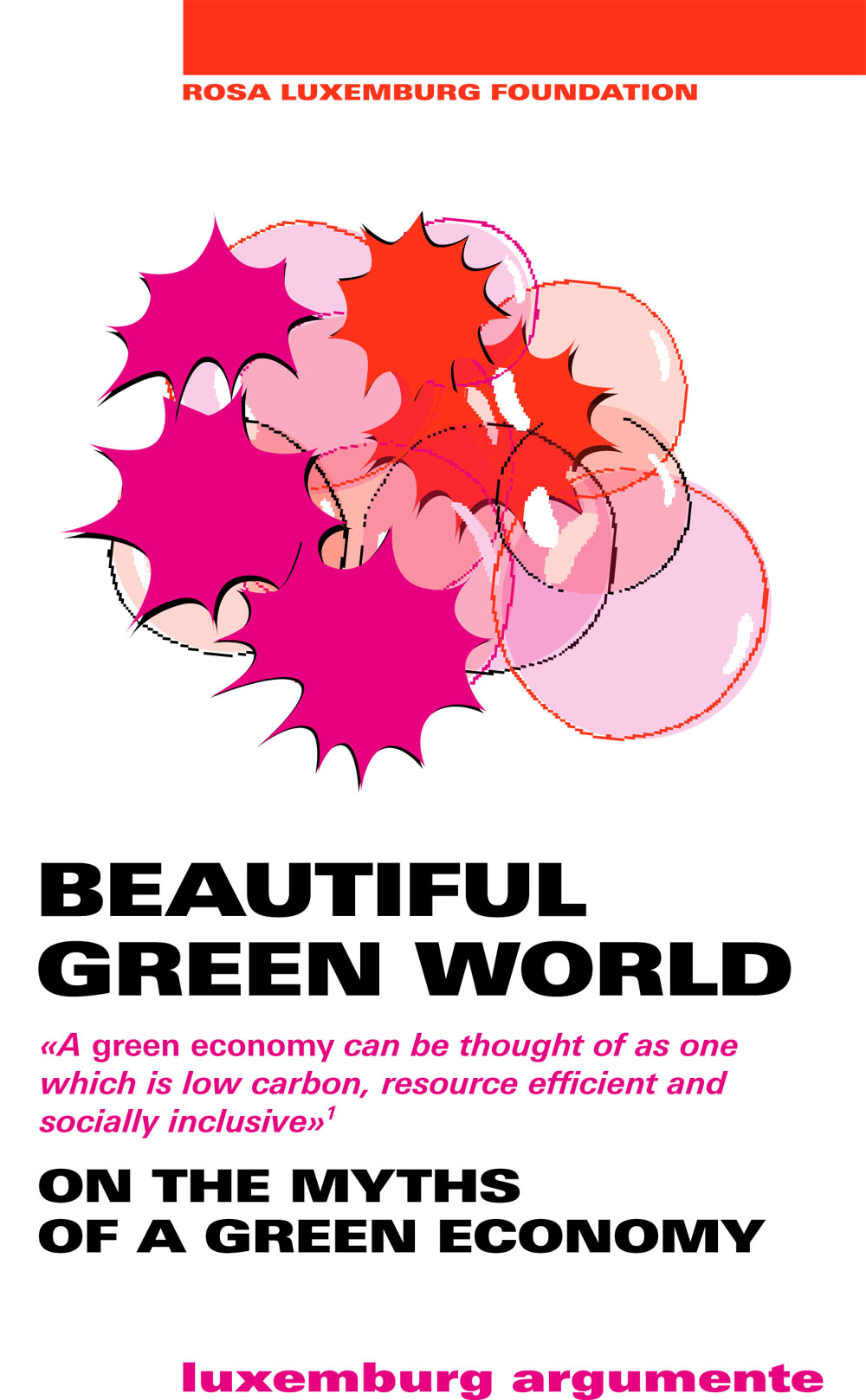environment
Royal Society’s tunnel vision on population and poverty

People and the Planet
Royal Society Science Policy Centre Report
April 2012
Review by Ian Angus
May 23, 2012 -- Climate and Capitalism, posted at Links International Journal of Socialist Renewal with the Ian Angus' permission -- The radical ecologist Murray Bookchin once compared populationism to a phoenix, the mythical bird that periodically burns up and is reborn from its own ashes. No matter how often the “too many people” argument is refuted, it always returns, making the same claim that people are breeding too much and consuming too much, devouring the Earth like a plague of locusts.[1]
Pablo Solon on Rio+20: 'We must change the capitalist system, not Earth's system'

Earth photographed from Russia's Electro-L weather satellite, taken from 36,000 kilometres with a high-definition 121-megapixel camera, creating the sharpest image of our planet yet.
By Pablo Solon
May 16, 2012 -- Focus on the Global South/Climate and Capitalism -- Twenty years after the United Nations Conference on Environment and Development in Rio de Janeiro, Brazil, in 1992, the environmental crisis continues to worsen.
The unsustainable development model that gained dominance in the world resulted to grave loss of biodiversity, melting of polar ice caps and mountain glaciers, alarming increase in deforestation and desertification and the looming danger of an at least 4º C increase in temperature, which will threaten life as we know it.
Science is saying that we are approaching a point of no return that will change the way our planet has behaved over 650,000 years.
Revolutionising production itself: for humanity and for the world

Under capitalism it is “profitable” to scar the precious mountains to retrieve coal in small seams.
By Mike Ely
April 24, 2012 -- Kasama, posted at Links International Journal of Socialist Renewal with the author's permission -- There is a valuable exchange happening on the Kasama website site. I won’t try to encapsulate it here, but want to respond to it. I think there are some sharp contradictions here — that are posed within our theory, and within the very choices facing people.
A horizon beyond scarcity and inequality
An exchange on Marx and Engels and 'small is beautiful'
[Links International Journal of Socialist Renewal urges its readers to consider taking out a subscription to Monthly Review, where this article
Bolivia: Challenges face Morales' goal of 'governing by obeying the people'

A march by indigenous group Conisur in favour of a controversial highway being built through Indigenous lands.
February 19, 2012 -- Green Left Weekly -- A new twist in the turbulent saga surrounding a proposed roadway through Indigenous land has reignited a debate raging throughout Bolivia since the middle of last year. The controversial highway ― which would cut through the Isiboro-Secure National Park and Indigenous Territory (TIPNIS) ― has been at the centre of protests and counter-protests. It has polarised Bolivian society and divided Indigenous groups that are the heart of the Evo Morales government’s social base.
‘Global sustainability’ wilts in South Africa’s political hot air

By Patrick Bond, Durban
Behind capitalism's destructive car mania

Stop Signs: Cars & Capitalism ― On the Road to Economic, Social & Ecological Decay
By Bianca Mugenyi & Yves Engler
RED Publishing & Fernwood Publishing
2011, 259 pages
February 5, 2012 -- Green Left Weekly -- The car, say Canadian authors Bianca Mugyenyi and Yves Engler, who took a bus ride across the United States, is a doomed jalopy going nowhere. It fails, especially in the “home of the car”, on every green count. (Watch the authors discuss their book HERE.)
Cars are the single largest contributor to US noise pollution and 40,000 people in the US die from car accidents each year (one million across the globe).
Pablo Solon on Rio+20: For an international campaign against the commodification of nature

By
Anti-immigration groups organise against book that exposes population myths

By Ian Angus
January 31, 2012 -- Climate and Capitalism -- Simon Butler and I wrote Too Many People? Population, Immigration, and the Environmental Crisis to promote discussion among environmental activists about two questions:
- Is population growth a significant cause of the global environmental crisis?
- Should the environmental movement support population reduction programs as solutions to environmental problems?
Since the book was published in September 2011, we’ve been very pleased by the eagerness of activists around the world to join in that discussion. Some readers are convinced by our arguments, some are not – in either case we look forward to continuing discussions while we work together to build a global movement against ecocide and for environmental justice. We expected such debates, and will continue to welcome them.


